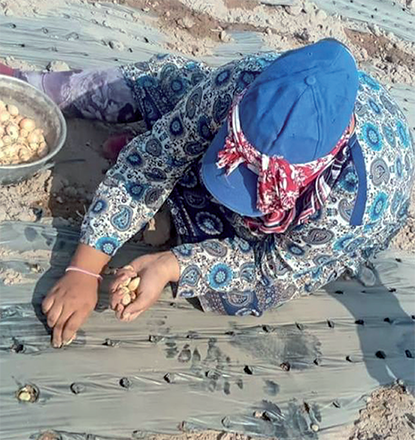AMMAN — Hamdan, an agricultural worker in the Jordan Valley, leaves his home at 5:30am to avoid the heat of the day on his 30-minute walk to the farm where he works.
The 45-year-old spoke with The Jordan Times on Monday after finishing his work at 2pm. Hamdan typically begins work at 7am, and receives a wage of JD6 per day.
Hamdan said that workers on the farm, including himself, have asked their employer to change their working hours to avoid the afternoon heat, but the employer refused.
“The heat is unbearable, and I am barely making enough to feed my three children, but they’ll get someone else if I don’t do it,” he said.
He noted that agriculture jobs in the Jordan Valley are “very scarce” these days, especially as heatwaves increase farmers’ water needs and increase the risk of production losses.
Currently, Hamdan only works three days per week “at best”, and he sometimes remains without work for weeks.
One female worker, who spoke with The Jordan Times on condition of anonymity, also reported working through the afternoon hours during the heatwave.
“Our need forces us to work in the heat … if we don’t work, we don’t eat,” she said.
President of the General Association for Workers in Agriculture, Water and Food Industries, Bushra Salman, pointed out that agricultural workers are “doubly vulnerable” during heatwaves.
Four Egyptian agricultural workers in the Jordan Valley suffered from heat strokes during last week’s heatwave after being forced to harvest “corchorus leaves” at 2pm, Salman told The Jordan Times.
One female worker suffered a snake bite, and another was stung by a scorpion while weeding a farm, she added.
These workers, who all earn a daily fee ranging from JD6 to JD7, were transported to the hospital and received treatment at their own expense, according to Salman.
The overwhelming majority of workers in the sector lack social security coverage and health insurance, she said.
